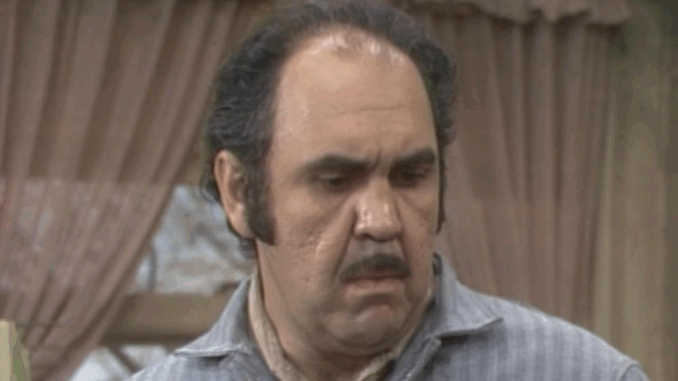
All in the Family masterfully used the confines of the Bunker living room to reflect broader societal issues, but few episodes underscored the theme of confinement as directly as “Prisoner in the House.” This impactful two-part episode, which aired as Season 6, Episodes 19 & 20, on February 2, 1976, and February 9, 1976, placed Archie Bunker in an unprecedented and uncomfortable situation, forcing him to confront his own biases from a very personal perspective.
A Home Under House Arrest
The premise of “Prisoner in the House” is a dramatic departure from the usual Bunker squabbles. Archie Bunker, in a rare moment of civic participation, is called for jury duty. However, his experience takes an unexpected turn when, due to a contentious trial and the risk of jury tampering, the entire jury is sequestered. This means Archie, along with his fellow jurors, is confined to a hotel for the duration of the trial, cut off from the outside world—and from his beloved armchair and beer.
This forced isolation creates immediate tension. For a man who values his independence and the familiar routines of his home, being a “prisoner in the house” (albeit a hotel) is a form of torture. The episode brilliantly highlights Archie’s discomfort with authority, his inability to adapt to new rules, and his constant need to express his opinions, even when inappropriate.
The Clash of Personalities and Prejudices
Beyond Archie’s personal discomfort, the sequestration brings him into close, unavoidable contact with a diverse group of strangers. This setup is classic All in the Family:
- Forced interaction: Archie is stuck with people he would normally avoid or quickly dismiss.
- Clash of viewpoints: The jury pool inevitably includes individuals from different racial, social, and economic backgrounds, setting the stage for Archie to unleash his prejudices.
- The pursuit of justice: Despite his biases, Archie is compelled to participate in the judicial process, forcing him to engage with the facts of the case and, grudgingly, with the perspectives of his fellow jurors.
The narrative explores how Archie’s biases influence his interpretation of evidence and his interactions with the other jurors. It’s a microcosm of the larger American society the show always aimed to portray, demonstrating how personal prejudices can infect even the most solemn duties.
Exploring Justice and Empathy (Archie-Style)
“Prisoner in the House” is significant for several reasons:
- Humanizing the System: It offers a rare look at the jury sequestration process from the perspective of an ordinary, flawed citizen, demystifying a part of the justice system.
- Challenging Archie’s Worldview: While Archie doesn’t undergo a miraculous transformation, the forced proximity to diverse individuals, and the necessity of working together on a common goal (delivering a verdict), subtly challenges his insular worldview. He’s compelled to listen, even if he doesn’t always agree.
- The Weight of Responsibility: The episode underscores the serious responsibility of jury duty and how personal biases can complicate the pursuit of justice.
“Prisoner in the House” stands as a powerful example of All in the Family‘s ability to take a seemingly straightforward premise and inject it with both humor and profound social commentary. By confining Archie, the show opened up a world of uncomfortable truths, making it a memorable and enduring chapter in the series’ legacy.